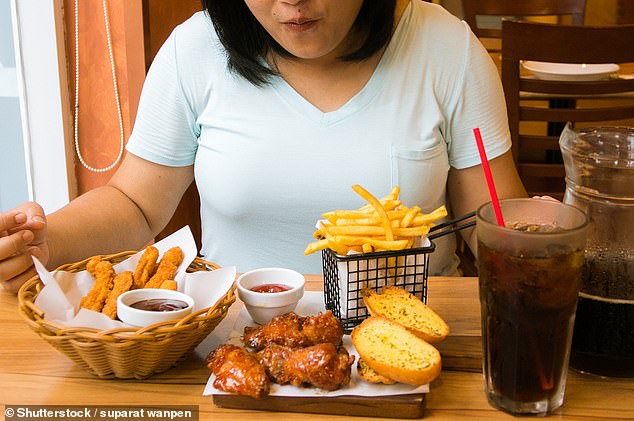[ad_1]
We have all reached for a bar of chocolate or packet of crisps after a trying day.
But our fondness for a snack when feeling down is adding many thousands of extra calories to our diets, a poll has revealed.
A quarter of Britons questioned in the survey said they would describe themselves as an emotional eater – admitting to eating 28,672 ‘comfort calories’ a month, or 344,064 a year.
Almost nine in ten of those surveyed said they had eaten food out of boredom or sadness, despite not being hungry. Many said they felt guilty as a result.
However, 78 per cent said they wanted to reduce the amount they eat because of feeling sensitive to weight gain. The most popular emotional nibbles were bags of crisps, chocolate bars, biscuits, bananas, buttered toast and instant noodles.
Nuts, cheese, sausage rolls, and crumpets were also common snacks chosen to give us an emotional boost.
Somewhat depressingly, four in ten of the 20,000 participants surveyed described food as their only real enjoyment in life.
Psychologist Dr Becky Spelman said: ‘Emotional eating is deeply rooted in how we were raised.

A quarter of Britons questioned in the survey said they would describe themselves as emotional eaters – admitting to eating 28,672 ‘comfort calories’ a month, or 344,064 a year
‘Many of us were given treats as a reward for being good or to soothe us when we were upset, so food becomes more than just fuel; it’s a source of emotional comfort.’
She said recognising the pattern was the first step towards replacing habits with something that ‘genuinely nurtures us emotionally’.
‘Real change begins with kindness, with treating yourself like someone you care about, even when you’re struggling,’ Dr Spelman added.
‘That shift in perspective is what helps break the cycle.’
Dr Babak Ashrafi from Superdrug Online Doctor, which commissioned the survey, said: ‘With the latest Government stats showing six in ten of us are obese or overweight, it seems many Brits need to break the cycle of emotional eating.’
[ad_2]
This article was originally published by a www.dailymail.co.uk . Read the Original article here. .

